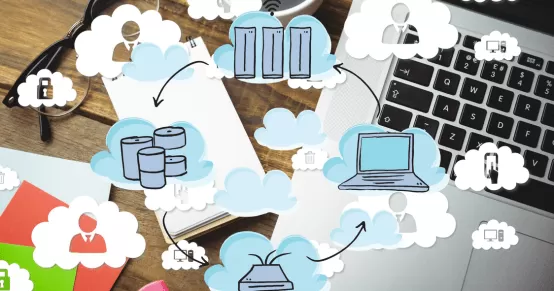
Digitalization: guide to implement and transform processes
Digital technologies have reached nearly 50% of the developing world’s population in just over twenty years. Furthermore, this speed has allowed the digitalization of commerce, services, education, health, among others.
Therefore, it is important to have a digital transformation plan to adapt to changes according to the sector. But how can a migration to the digital ecosystem be carried out?
What is digitization?
It is the process in which information from the real world is transformed into a digital format. Also, it can be data about communication, documents, operations or learning.
For the objectives of sustainable development, the digital adaptation process of companies is based on information security, environmental culture and cost reduction through different types of digitalization and tools.
Tool guide for business digitalization
Below are some examples and advantages of digital technologies that can be implemented in small and large companies.
Digitization of data storage
First, we encounter the digitalization of data storage. It refers to the process of converting paper information into digital format. That is, they can be documents, contracts or legal files that are created from software and stored for faster search or use. In this sense, these are some strategies with their corresponding advantages.
- Cloud storage: allows access to information from anywhere. That is, greater efficiency and speed.
- Databases: implies security to access data.
- Storage on network drives: facilitates teamwork in file management.
Process automation
With this technology, anyone can configure software to simulate and perform the actions of a human. Likewise, this can be through robots, Artificial Intelligence or the Internet of Things.
- Robotic Process Automation (RPA): is responsible for the automation of repetitive tasks.
- Business Process Management (BPM): end-to-end process improvement. Likewise, it helps save time in business commercial strategies.
- Workflow Automation: Automate productive workflow.
- AI (Artificial Intelligence): allows decision making based on information and data analysis.
- IoT (Internet of Things): an advantage is real-time remote monitoring and control.
Customer service digitization
It is the use of digital technologies to streamline the relationship between companies and customers, which allows us to offer innovative experiences. Furthermore, the process goes from data collection to interaction without human intervention. Below are some tools.
- Customer relationship systems (CRM): allows a comprehensive view of the customer to personalize the interaction according to their needs.
- Chatbot: Provides conversational customer service at all times.
- Voicebots: offers a natural and comfortable user experience from a smartphone.
- Self-management: guarantees client autonomy and self-management that saves human resources.
- Social networks: their importance lies in the close and direct interaction with the user. At the same time, his opinion is known.
Implementation of digital marketing strategies
The digital era has given rise to different ways of promoting products and services beyond television advertisements or outdoor advertising. Scope allows you to personalize and create intelligent content based on user interests.
- Content on industrial screens: helps impactful communication in the business environment.
- Search Engine Optimization: Increases online visibility and attracts relevant organic traffic to the company’s website.
- Online advertising and social networks: ensures massive reach and precise segmentation.
- Email marketing: it is exclusive communication with customers and high return on investment (ROI).
- Content marketing: helps build trust and engagement with the target audience.
Supply chain digitization
It is about the application of digital technologies to manage products throughout the supply chain. In this sense, inventories are optimized, losses are reduced, human errors are avoided and response times in electronic commerce are accelerated.
- Inventory management systems: reduce product shortages and excess inventory of an online store.
- Product tracking: allows remote tracking by management software from origin to destination.
- Logistics automation: it is the precise and secure management of procurement, storage, distribution, customer service and feedback.
Why digitize a business or company?
Mainly, digitalization is driven by sustainability. It allows promoting growth and competitiveness in the current context.In addition, companies take advantage of digital technology to adapt to changes, identify opportunities and make informed decisions.
In conclusion, the advantages of migrating company or business processes to the digital ecosystem is the transformation of experiences that value brands, for example:
- Operation efficiency
- Fast and secure access to information
- Better customer experience
- Greater competitiveness
- Innovation and adaptability

